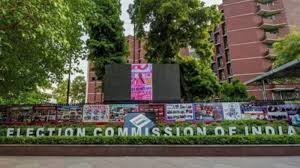EC seeks citizenship proof from existing electors in Bihar, but defended voter enrollment safeguards in Jharkhand last year

The Election Commission of India (EC) has started a fresh revision of electoral rolls in Bihar. This time, the Commission has asked existing voters to provide proof of citizenship, including those who have been voting for decades. The move is part of the Special Intensive Revision (SIR) exercise ahead of the 2025 Bihar Assembly elections.
This shift in policy has stirred strong reactions. Critics argue it marks a significant change in how voters are treated. Many are comparing it to last year’s revision process in Jharkhand, where the EC followed a less intrusive approach.
What Has Changed in Bihar?
The EC now requires voters added after the 2003 electoral roll—and even some earlier ones—to submit documents proving they are Indian citizens. This is unusual. In the past, the Commission did not demand such proof unless a formal objection was raised.
Voters must now provide one of the following:
- Birth certificate
- Indian passport
- Educational certificate showing place of birth
- Caste certificate mentioning nationality
- Citizenship certificate
In addition to the document, voters must sign a self-declaration stating they are Indian citizens. This declaration carries legal consequences if the information is false.
Why Is the EC Doing This?
The EC claims this step will help clean the electoral roll. Officials say they want to ensure only Indian citizens appear on the list. The Commission says this aligns with its constitutional duty under the Representation of the People Act.
According to EC sources, they found discrepancies such as duplicate entries and suspected foreign nationals in the rolls. These issues, they say, justify the need for extra checks.
The Jharkhand Contrast
Last year, the EC updated the voter list in Jharkhand. But unlike Bihar, the Commission did not ask existing voters to submit documents. Instead, it trusted the old process. If someone raised a complaint, officials would investigate. Otherwise, voters on the list were assumed to be citizens.
This contrast has raised eyebrows. Why apply strict rules in Bihar but not in Jharkhand? The inconsistency has triggered criticism and suspicion about the Commission’s intentions.
Legal and Political Reactions
Several political parties have voiced concern. They argue this is a de facto NRC (National Register of Citizens) and could disenfranchise thousands. Many fear poor and marginalized groups will be most affected.
The matter reached the Supreme Court. The Court questioned whether the EC has the authority to verify citizenship. By law, that power lies with the Ministry of Home Affairs, not the EC.
The Court also asked why common IDs like Aadhaar, voter ID, or ration cards were not accepted. Following this, the EC agreed to include those documents in the approved list. The Court allowed the revision process to continue, but it emphasized the need to avoid unfair exclusions.
Ground-Level Impact
In Bihar, many voters have reacted with confusion and fear. People in remote areas often lack documents like birth certificates or passports. Those who migrated from other states decades ago may not have paperwork that proves their citizenship.
Reports from areas like Purnia, Araria, and Kishanganj show that thousands are struggling to find acceptable documents. Community leaders say older adults, migrant workers, and rural voters face the biggest challenges.
Without proper documents, voters risk losing their right to vote. Many are turning to NGOs and local officials for help, but resources are limited.
Could This Spread Across India?
Experts fear the Bihar model may become a nationwide standard. If that happens, millions of Indians could be forced to re-verify their citizenship. This could create a huge administrative burden and cause distress among vulnerable groups.
“This is an unnecessary and dangerous move,” said a constitutional lawyer. “The EC should focus on removing duplicate entries, not forcing existing voters to prove something they already did years ago.”
Is the EC Losing Public Trust?
The Election Commission has long been seen as a neutral body that protects India’s democratic rights. But recent actions have led many to question its role. Some believe the Commission may be aligning with political narratives that push for tighter voter scrutiny.
If this trend continues, the EC could lose the trust it built over decades. In a democracy, perception matters. Even the appearance of bias can damage institutions.
Conclusion
The EC’s demand for citizenship proof from existing voters in Bihar is a serious policy shift. It breaks with long-standing practices and contrasts sharply with how the Commission handled voter roll updates in Jharkhand.
While the EC insists it is only doing its duty, many fear the move could exclude legitimate voters. It also raises legal questions about the EC’s authority.
As India heads into key elections, ensuring fair and equal access to the ballot should be a top priority. Reforms should enhance democracy—not make it harder for citizens to participate in it.






